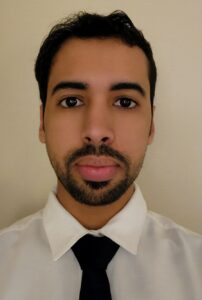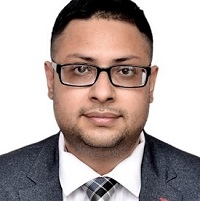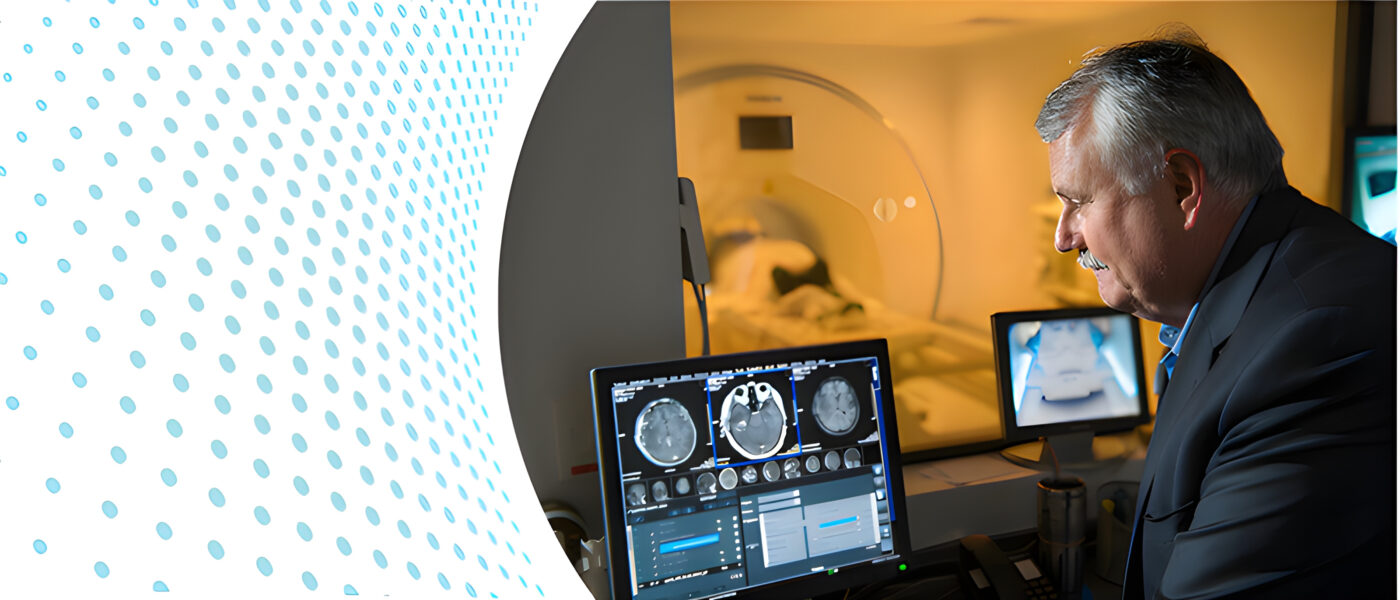Stroke Fellowship Program
Welcome to the Stroke Fellowship Training Program at McMaster University.
Welcome
We aim to offer a vibrant academic atmosphere combined with a focus on clinical excellence in all aspects of stroke care making for an exciting and extraordinary training experience.
Our ten specialty-trained stroke faculty provide a range of expertise and hands-on teaching. The stroke program is the regional referral site for 2.2 million people in Central South Ontario and cares for over 700 acute stroke patients annually at its 62-bed integrated stroke service, consisting of 24 acute stroke beds and 38 rehabilitation beds. There is state-of-the-art neuroimaging and interventional stroke treatment, with ~150 annual mechanical thrombectomies. Over 2,500 patients with stroke and threatened stroke are seen annually in our regional stroke prevention and stroke follow-up clinics. Research activities center on our internationally recognized clinical trials, clinical epidemiology, and thrombosis and hemostasis research groups at McMaster University and its affiliated Population Health Research Institute. Fellows will receive closely supervised training in state-of-the-art clinical stroke medicine, and for those fellows undertaking a second year, clinical research training in preparation for an academic career.
There is a full academic schedule, which includes weekly stroke rounds, neuroradiology and neurointerventional rounds, stroke journal clubs, research seminars and neuroscience rounds.
To ensure that upon completion of the fellowship, trainees will be well prepared to lead stroke programs at other institutions, the standardized first year will be comprised of core block rotations, including stroke prevention clinic/neurosonology, inpatient stroke unit care, and stroke consult service. Moreover, we provide supervised exposure to hyperacute stroke and endovascular mechanical thrombectomy decision-making during on-call shifts and an opportunity to pursue dedicated blocks in interventional neuroradiology. Additional electives can be arranged in neurorehabilitation, neurointensive care, or neuroradiology.
Certification Outcome
The successful completion of the fellowship will grant a Fellowship McMaster Certification. Our fellowship is also recognized nationally by the Canadian Stroke Consortium which provides a second certificate of Fellowship completion.
American Society of Neuroimaging Neurosonology Certification
To date, 4 fellows have taken the ASN Neurosonology examination with 100% pass rate.
Fellowship Application Requirements
The fellowship program is designed for current residents or recent graduates of:
- Neurology Residency programs (Canadian, American or International)
- Internal Medicine Residency programs (Canadian, American or International)
Applicants must demonstrate proficiency in English. Recent graduates are required to submit:
- Application Form and other PGME requirements. For details, please go to the Fellowship Application – Postgraduate Medical Education (mcmaster.ca)
- Updated CV with the chronological order of clinical activities and explanations for gaps in training/clinical exposure.
- Updated CV with list of publications that can be indexed in PubMed, in chronological order and using this format: Authors. Article Title. Journal Name. Year; Volume(Issue): Pages. DOI. List the first 10 author names, followed by “et al.”
Example: Hart RG, Pearce LA, Gorelick PB, Connolly BJ, Catanese L. Aspirin Use and Risk of Subdural Hematoma: Updated Meta-analysis of Randomized Trials. Journal of Stroke and Cerebrovascular Disease. 2021;30 (8): 105911. doi: 10.1016/j.jstrokecerebrovasdis.2021.105911. - 3 Letters of Reference
- Personal Statement
Applications Deadline
The deadline for application submission is July 31st annually.
Self-funded fellows can apply no later than 9 months in advance.
For any questions, please email robin.bennett@phri.ca
Goals of Training
The Stroke Medicine fellowship will prepare trainees to be experts in the continuum of stroke care through exposure to a wide variety of patients with stroke and threatened stroke under the supervision of senior stroke program faculty. Upon completion of the fellowship, trainees will be well prepared to lead stroke programs at other institutions, to continue life long learning in stroke management, and to have experience in conducting stroke research.
Fellows will be expected to prepare and submit at least one scholarly article for publication in peer-reviewed journals and/or present at a national/international conference under the supervision of a faculty mentor. These include critical narrative reviews, systematic reviews, or research data (see below). Fellows will present and discuss clinical cases monthly at the weekly stroke rounds conference, with selected cases published on the stroke program website. Fellows will be encouraged to take advantage of opportunities to carry out research projects using the databases available from the Registry of the Canadian Stroke Network, Population Health Research Institute,
and Regional Health Network. Projects will be developed with and supervised by one of the fellowship co-directors. For selected fellows anticipating a second year of stroke fellowship training, research activities will be expanded and self-initiated projects and grant writing required. Fellows will additionally participate and be trained in the conduct of clinical trials at the site level.
Length of Training
1-2 years. The stroke fellowship program consists of 4 fellows per annum. 2 are fully funded (commensurate) and 2 spots are held for self-funded applicants.
Funding
We are very grateful for the generous support of the Marta and Owen Boris Foundation which has been pivotal in the expansion and success of our Stroke Fellowship Program which has trained 33 fellows from 9 countries.
Additional sources of funding:
- McMaster University
- Bayer (2015 – 2019)
- Boehringer Ingelheim (2015-2017)
Featured Fellows

Dr. Mahmoud Alshanqiti obtained his medical qualification (MBBS) from King Abdulaziz University, Saudi Arabia in 2015. He successfully completed a 5-years Neurology Residency Program at King Fahad General Hospital in Jeddah, Saudi Arabia in 2021. From 2022 to 2023, he served as an Acting Neurology Consultant at the National Neurology Institute at King Fahad Medical city, Riyadh, Saudi Arabia with a primary focus on stroke services.
Dr. Alshanqiti aspires to become a proficient stroke neurologist, dedicated to contributing to the development of comprehensive stroke care systems. He aims to become an influential figure within the stroke community, addressing the growing demand for specialized stroke expertise.
 Dr. Abhilekh Srivastava completed his medical school in 2010 from Maulana Azad Medical College (MAMC) in Delhi University, India. He was adjudged as the best outgoing medical graduate in his final year of medical school. He then went on to finish a 3 year residency in Internal medicine from 2011-2014 followed by a 3 year residency from 2014-2017 in Neurology from the same university (MAMC and GB Pant Hospital). He was working as a consultant neurologist from 2017-2021 at Fortis Hospital, New Delhi. He was then selected for a clinical stroke fellowship at McMaster university which he started in September 2021. His areas of special interest are therapeutics in acute stroke care and research into population based primary prevention strategies in acute stroke.
Dr. Abhilekh Srivastava completed his medical school in 2010 from Maulana Azad Medical College (MAMC) in Delhi University, India. He was adjudged as the best outgoing medical graduate in his final year of medical school. He then went on to finish a 3 year residency in Internal medicine from 2011-2014 followed by a 3 year residency from 2014-2017 in Neurology from the same university (MAMC and GB Pant Hospital). He was working as a consultant neurologist from 2017-2021 at Fortis Hospital, New Delhi. He was then selected for a clinical stroke fellowship at McMaster university which he started in September 2021. His areas of special interest are therapeutics in acute stroke care and research into population based primary prevention strategies in acute stroke.

Greetings to all inhabitants of the planet earth, I’m Dr .Abdulrahman Abu Amara. If you have been chosen like me to do this bio, then you’re very lucky. Not everyone gets to be rewarded with such an honor and high stakes. To start you off with your reading journey here about me , well, I completed my undergraduate studies in Al Imam Mohammed ibn Saud University-College of Medicine in 2017. I underwent my residency training in Adult Neurology at King Fahad Medical city – Riyadh Saudi Arabia and humbly became board certified in the field in December 2022. I was welcomed into the Stroke family team at McMaster University in 2023 where I will be further enhancing my training in acute stroke management in a very friendly, charming, and impeccable environment. I’d also be extracting the tiny jelly like clots in blood vessels throughout my stay and hopefully decking the halls with my smiles and charm and lack of singing skills. A fellowship in stroke was always my desire and something about fixing brains always made me feel delighted and joyed. Watching my patients improve immediately after is what gave this passion inside me the light it needs to build the road to my future as a bright Strokologist and soon afterwards as an interventionist. On the other hand, I am also great when it comes to hugs as I’m a tall 6 foot guy. Feel free to stop and say hi at your own risk, I’m taken.
My goal in life is to fill the world with sunshine and hopefully save it one brain cell at a time. On another note, I also enjoy a good iced beverage. If you see me, don’t bother with a warm one.
And before I end my statement here, if you are a dreamer and a passionate individual and need your passion nurtured from deep within , McMaster University is the place to be. I will be forever grateful to everyone here especially Dr Luciana Catanese who provided me with unconditional support in every step of the way.
Sashi Perera, MD
Associate Professor McMaster, Investigator PHRI
Neurology Residency Program Director
Kelvin Ng, MD
Associate Professor McMaster, Stroke Internist HGH, Stroke Research site Lead at HGH
Danielle De Sa Boasquevisque
Stroke Neurologist/Assistant Professor of Medicine, Niagara General Hospital
Eslam Abdellah, MD
Stroke Neurologist New Brunswick, Canada
Amr Mouminah, MD
Ministry of Health Saudi Arabia, Leader Neurology Services Jeddah, Saudi Arabia
Tushar Patil, MD
Professor & Head, Neurology; Adjunct Professor Critical Care, Wardha, India
Aviraj Deshmukh, MD
Stroke Neurologist and Neuro-interventionalist, Health Sciences Noth, Sudbury ON, Canada
Aristeidis Katsanos, MD
Academic Stroke Neurologist Hamilton General Hospital, Assistant Professor McMaster University, PHRI Investigator
Anemon Puthuppallil, MD
Stroke Internist Kingston, ON
Nouran Tahir, MD
Neurologist/Stroke specialist at King Abdul Aziz medical city, Riyadh Saudi Arabia
Lauren Mai, MD
Stroke Neurologist, London Health Science Center
Alicia Mattia, MD
Stroke Neurologist, Niagara General Hospital
Curriculum Highlights
Salient, distinctive aspects of the stroke fellowship program include:
- Emphasis on evidence-based management, critical appraisal of the literature, and clinical epidemiology.
- Experienced, expert faculty mentors with diverse interests and expertise with commitment to teaching and the success of fellows.
- Comprehensive experience in neurosonology allowing for ASN certification.
- Access to the unmatched research opportunities at the world-renowned Population Health Research Institute (PHRI; at which the fellowship administration and offices are located).Past and present PHRI-led stroke trials include:
- RE-LY
- AVERROES
- NAVIGATE ESUS
- NASPAF-ICH
- ANNEXA-I
- AXIOMATIC-SS
- PACIFIC-STROKE
- ENRICH-AF
- CATIS-ICAD
- Education Rounds
- Monday 8-9 a.m.: Fellows Seminar – Research Methodology
- Tuesday 12-1 p.m.: Neuroradiology Rounds
- Wednesday 8-9 a.m.: Challenging Case Discussion
- Wednesday 12-1 p.m.: Stroke Research Bussiness Meeting – Ongoing Clinical Trials
- Thursday 8-9 a.m.: Stroke Grand Rounds
- Friday 8-9 a.m.: Neurology Grand Rounds (optional)
- Others: Monthly – Bi-monthly webinars on high-yield topics in Stroke Neurology
- Elective opportunities
- Stroke Rehabilitation and Recovery
- Spasticity in Stroke – Botox Clinic
- Endovascular Stroke Treatment
- Neuroradiology – advanced
- Neuro-critical Care
- Stroke Research – Clinical Trials
- Stroke Research – Quality Improvement
- Neurosonology – advanced
- Others on demand
Supervision & Feedback
Verbal and formal evaluations will be provided to the trainee every 3 months. Fellows will meet with the fellowship director every 4 months in order to receive feedback about their progress and to provide comments and criticism of the fellowship program. Minutes of these meetings will be drafted and signed by all parties in attendance. Satisfactory ratings on all quarterly evaluations are required to receive a fellowship certificate.

